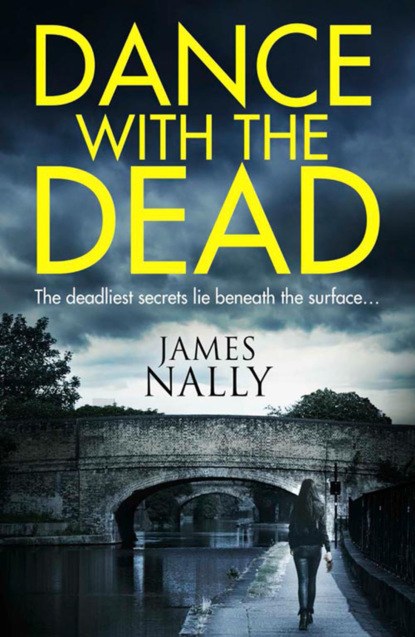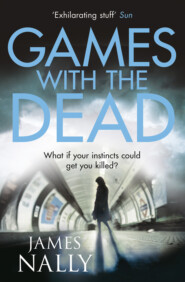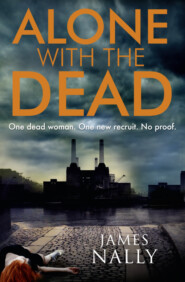По всем вопросам обращайтесь на: info@litportal.ru
(©) 2003-2024.
✖
Dance With the Dead: A PC Donal Lynch Thriller
Автор
Год написания книги
2018
Настройки чтения
Размер шрифта
Высота строк
Поля
Melinda’s parents knew nothing of their daughter’s secret life.
‘She wasn’t even blonde,’ her bewildered dad, Jack, told one newspaper, ‘she was a redhead. We didn’t even recognise her in those modelling shots.’
In another: ‘I just can’t believe that she got herself involved in something like that. She was so shy that she’d send for someone else to order for her at a café.’
But her flatmate and fellow escort Kim offered a very different perspective: ‘Sometimes businessmen say to me “You’re smart. Come and work for me as my secretary”. But why would I swap the tube at rush hour for a chauffeur-driven Rolls Royce at dawn? Why would I make tea for a man when I can get him to buy me £300 glasses of champagne?’
I wondered what Melinda would have swapped at the moment she first saw that knife. I blocked it out, stuck to the facts. Similar MO, similar injuries … Melinda made it onto the list of murders that could be connected to Liz Little.
I’d just started dipping into the previous year’s file when my office phone rang.
‘I’ve got some very interesting news for you,’ Fintan teased.
‘Please tell me that “very interesting” also means “very good”. I need some.’
‘Ah, Jesus, you’re not still falling in love with all those dead hookers, are you?’
‘I’m reading about men who have sex with dead hookers, Fint. Honestly, I don’t think I’ll ever get the horn again.’
‘And what a devastating loss to London’s womankind that would be. Usual place, six-ish?’
‘Why do we always have to go to that kip?’
‘Trust me, it’ll be worth it.’
Chapter 6 (#ulink_101ec0d9-7eed-5a47-a035-ea5fb872e269)
Soho, London
Saturday, April 3, 1993: 19.00
The Coach and Horses in Soho felt like stepping into a faded 1970s Polaroid photo, all nicotine yellow and cancerous tan. Especially the cadaverous regulars. They were the worst kind of pissheads – arrogant drunks with an image of themselves as rakish intellectual mavericks. Beware the self-proclaimed ‘local character’, or anyone who works so hard to appear eccentric. The Coach was full of them – clinging to the bar and their own high opinions of themselves, an exclusive club validating each other’s kamikaze drinking habits and boorish wit.
I resented these Peter O’Toole wannabes in their tweed jackets and cravats, wafting their imported Gauloises cigarettes, affecting the louche deportment of drunken professors.
They seemed to be either overpaid voiceover artists (failed actors who’d peddle any product for money), overpaid columnists (failed writers who’d peddle any opinion for money) or people who ‘work in TV’ (whatever that meant).
Of course, Fintan loved it. The Coach plugged him into the glorious Fleet Street of yore, when charlatan hacks drank, whored and rabble-roused while occasionally bashing out award-winning nuggets of copy.
He arrived in customary style: inexcusably late, mac on, fag on, game face on. Buzzing with mischief.
The pint I’d bought him three rounds ago now looked like stale piss, but he downed two thirds in one go, sleeved his mouth and said: ‘I hope you’ve got plenty of paper cash with you.’
‘Why would I need paper cash?’
‘Because, last time I checked, G-strings don’t hold pound coins.’
I cringed. Taking me to a strip club felt akin to tying up a starving hound outside a butcher’s shop window. There was a very real chance I’d lick the glass and howl ravenously at the carcasses.
Of course, I came up with a more mundane objection. ‘And why would I want to tuck the best part of a week’s salary into the knickers of a girl who isn’t even interested in me.’
‘Because, my bold, intrepid, swordsman of truth and justice, you can find out all about Ms Elizabeth Little. Same again?’
He skipped to the bar, schoolgirl-giddy and beaming. Tonight he had a scoop rocketing through the printing presses and a series of juicy follow-ups baking in the oven. For once, he could relax. He returned with three pints – two for himself to catch up – and a chipped bowl of gnarly pork scratchings.
‘Come on, Fintan, don’t make me beg.’
‘Well, if begging’s your thing, lover boy, I’m sure we can find a lady to cater for your wanton, unmanly needs at the Florentine Gardens hostess and erotic dance club, just off Regent’s Street. Of course, we’re going there purely on business, you understand?’
‘How did you find out she worked there?’
‘She filed a tax return. Invoices, the lot. Though I suspect she declared about a tenth of what she actually earned blowing fat Arabs and the like, certainly judging by her flashy pad.’
‘What, so hookers are paying tax now?’
‘Well, Donal, funnily enough she didn’t describe herself as a hooker on her tax return. Jesus, can you imagine? Annual turnover: 300 men …’
‘Current assets: pert tits and arse.’
‘Fixed assets: horny old men. No, as far as the taxman’s concerned, Elizabeth Little is a professional dancer who invoiced the Florentine for 24k in the last tax year.’
‘I still don’t understand why someone in the black economy would declare themselves to the taxman.’
‘Well, they got Al Capone for tax evasion.’
‘What?’
‘Maybe the owner of the Florentine wants to make sure it’s legit, at least on paper. Think about it, Donal, it’s the perfect business for laundering money. It’s all cash, isn’t it? No man’s going to risk having a payment to a glorified whore house on his credit card bill. And because it’s officially legit, the owner can rinse his dirty money through the club’s accounts.’
‘And that owner is?’
Fintan didn’t speak for a moment. Behind me, the ancient cash register dinged and spat out its clunking metal drawer. A knot of people to my right laughed way too hard.
Fintan’s words were as dry as chalk, as if they’d sucked all the moisture from the air.
‘The club is owned by Jimmy Reilly.’
It felt strange hearing the name spoken aloud. Hardened gangsters melted at the mere mention of it, refusing to talk about him even in hushed or reverential terms. Newspapers, including Fintan’s, refrained from printing his name for fear of reprisals.
Unlike cartoon 1960s villains the Krays, Reilly eschewed fame and limelight. But amongst criminals, police and the media, his reputation for creative violence – which he preferred to carry out personally – made him an almost mythical bogeyman figure.
I learned all about him a few months’ back when our Cold Case Unit had been struggling to cope with a mounting number of unsolved gangland hits. DS Barrett hauled in Scotland Yard Intelligence to supply us with a ‘who’s who’ of London’s criminal underworld. Reilly won that particular beauty pageant hands down.
They described him as one of a new breed of ruthless and sophisticated ‘godfathers’ who’d completely overhauled the way criminal gangs worked – so that bringing bosses like him to justice proved all but impossible. They listed on a whiteboard the differences between this ‘new wave’ of crime lords and the ‘pavement-crossing, sawn-off shotgun merchants’ of yore. Some stuck in my mind.
* They acquire legitimate businesses and use them as a front for their illegal activities.
* They employ top accountants, lawyers, barristers, financial advisers to make this happen.







